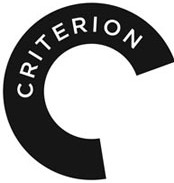VISIONARY ABERRATIONS FROM JAPAN’S ANALOG ERA
 Before Japan’s direct-to-video film industry exploded into the V-Cinema phenomenon that defined much of the 1990s, filmmakers during the 1980s were testing the limits of gore and taste with a wave of horror videos that were short on runtime but long on trauma. This collection celebrates this “V-Splatter” era with six hard-to-find classics, many of which are presented here for the first time on Blu-ray and DVD in the West.
Before Japan’s direct-to-video film industry exploded into the V-Cinema phenomenon that defined much of the 1990s, filmmakers during the 1980s were testing the limits of gore and taste with a wave of horror videos that were short on runtime but long on trauma. This collection celebrates this “V-Splatter” era with six hard-to-find classics, many of which are presented here for the first time on Blu-ray and DVD in the West.
Taking inspiration from the mini-monsters that became popular in American horror films of the 1980s, Masayoshi Sukita’s Gakidama features a reporter who is possessed by a forest spirit and spawns a gruesome little humanoid monster that torments him and his wife. Next, Akihiro Kashima’s Biotherapy combines 1950s science fiction with Italian giallo killers as a group of scientist are stalked by a murderous alien monster who hides its identity beneath a black hat and trench coat. Shigeru Izumiya’s seminal cyberpunk film Death Powder features an android hunter who finds his consciousness radically altered when he breathes in a replicant’s powdery remains. Kazuo “Gaira” Komizu’s Guzoo: The Thing Forsaken by God – Part 1 merges The Thing with the “young women in peril” slasher film to create the prototypical Japanese tentacle-horror film. In Takuro Fukuda’s Conton, a young man is harassed by gangsters and plagued by dreams of a creature hunted by monstrous knights until his dream and his reality combine. Finally, Jôji Iida’s Cyclops takes place in a world where mutants hide amongst us and where The Terminator is spiked with a violent dose of body horror.
Running just 30 to 60 minutes each, these mind-blowing, stomach-turning Japanese nasties pack a fleshy punch for horror fans and Japanophiles alike.
Special Edition Contents:
- High Definition (1080p) Blu-ray presentations of all six films
- Original uncompressed Japanese mono audio for all six films
- Optional English subtitles on all six films
- New interviews with director Masayoshi Sukita and visual effects artist Shin’ichi Wakasa, actors Hirohisa Nakata and Jun’ichi Haruta, director Shigeru Izumiya, and director Kazuo “Gaira” Komizu
- Interview with director Jôji Iida
- Newly filmed appreciations by critic Kat Ellinger and special effects artist Dan Martin
- Extensive image galleries
- Illustrated collector’s booklet featuring new writings by Japanese cinema experts Tom Mes and Jasper Sharp

